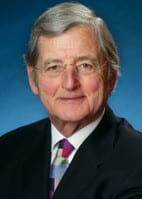
CANADA: Politicians, Public Health NGO join calls for Basic Income
A former Conservative senator and the Association of Local Public Health Agencies of Ontario have recently expressed their support for Basic Income, joining a number of prominent politicians, political parties and NGOs who now support the introduction of a Basic Income in Canada
The NGO, the Association of Public Health Agencies in Ontario, an organisation of boards of health and public health units across the province, declared their support at a meeting on the 8th of June. The support comes after the health unit of Simcoe Daskoka, Ontario first came out in favour of the policy at the start of June. The support is part of a commitment to focus on the social determinants of health, with income and income distribution the first considered. In the adopted resolution, the association point out “1,745,900 Ontarians, or 13.9 percent of the population, live in low income according to the 2011 National Household Survey after-tax low-income measure.” They join Food Banks Canada (p2), another prominent NGO who declared support for Basic Income recently.
Michael Meighen, a former Conservative senator is another supportive voice. The Québec native, who ran for parliament in support of Basic Income at the 1972 and 74 general elections has re-iterated his support in a recent interview. He cited some uncertainties around support for the proposal, saying ‘That’s where pilot projects come in – we have to test it’, suggesting that successful tests will make the policy easier to promote politically. He joins Hugh Segal, another former Conservative senator in favour of Basic Income.
Another politician, this time Ontario Liberal MPP Jeff Leal also had encouraging words about Basic Income, saying, “This would go a long way to eliminate poverty in Canada”, and added “As long as it is designed in such a way that it wouldn’t create a welfare wall as a disincentive for individuals to move into the workforce, I certainly believe that can be done”.
These voices join the mounting calls for Basic Income in Canada in recent months. As well as the above mentioned Food Banks Canada, a number of prominent politicians have also declared their support. At a recent conference on poverty in Prince Edward Island, the leader of every party contesting the provincial election voiced their support, while the federal Liberal Party also adopted Basic Income as a policy at its national conference last year. Even more recently, the mayors of Alberta’s capital and two biggest cities, Calgary and Edmonton also voiced their support, with Calgary mayor Don Nenshi calling for mayors to work together to push for its implementation.
For more information, see:
Roderick Benns, “Ontario’s association of health units green lights basic income as policy“, Leaders and Legacies, 10 June 2015
Roderick Benns, “Second prominent Conservative speaks out in favour of basic income pilot projectsLeaders and Legacies, 10 June 2015
Todd Vandonk, “Could a guaranteed basic income solve our poverty problems?”, myKawartha.com, 12 June 2015


